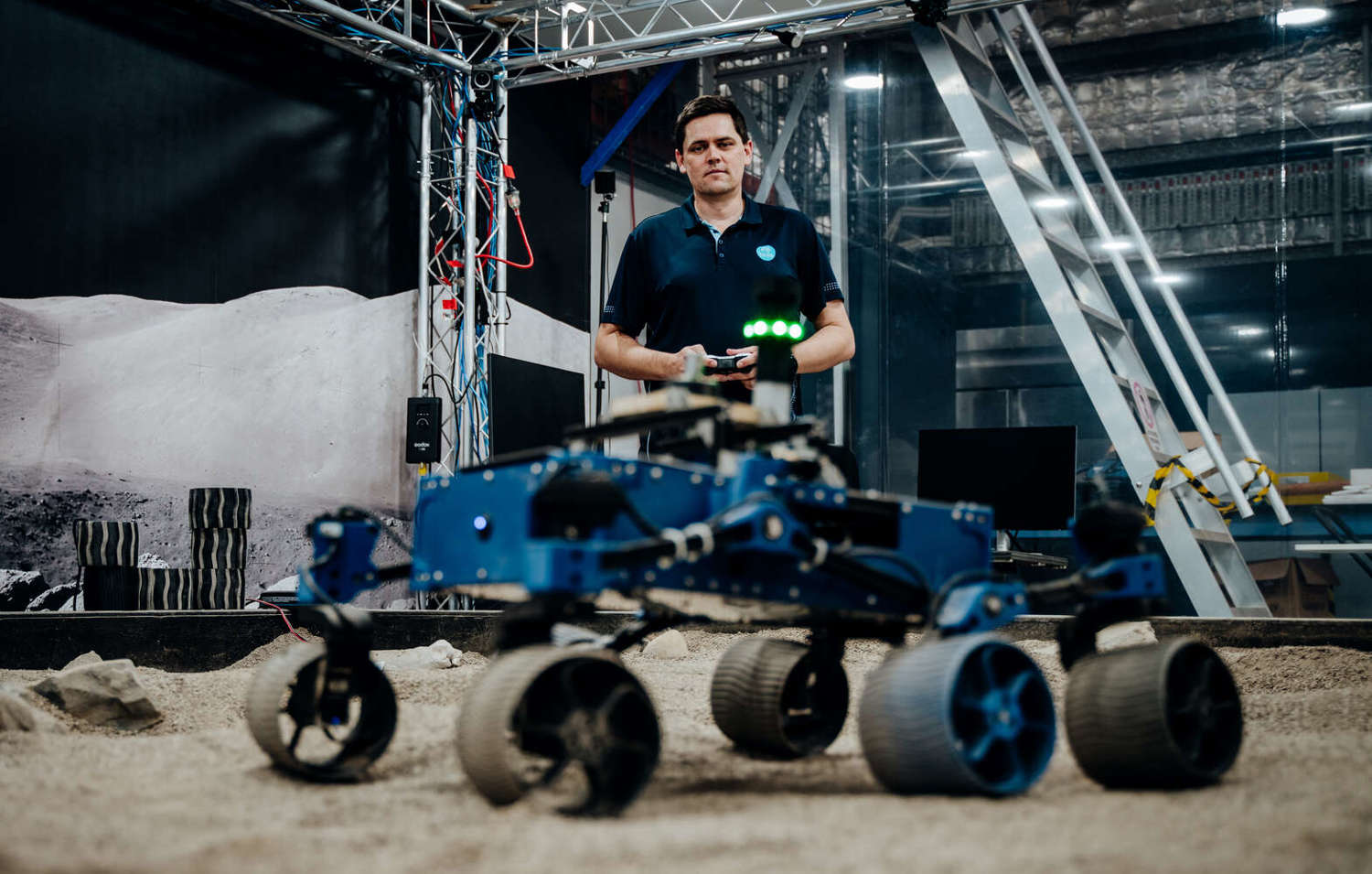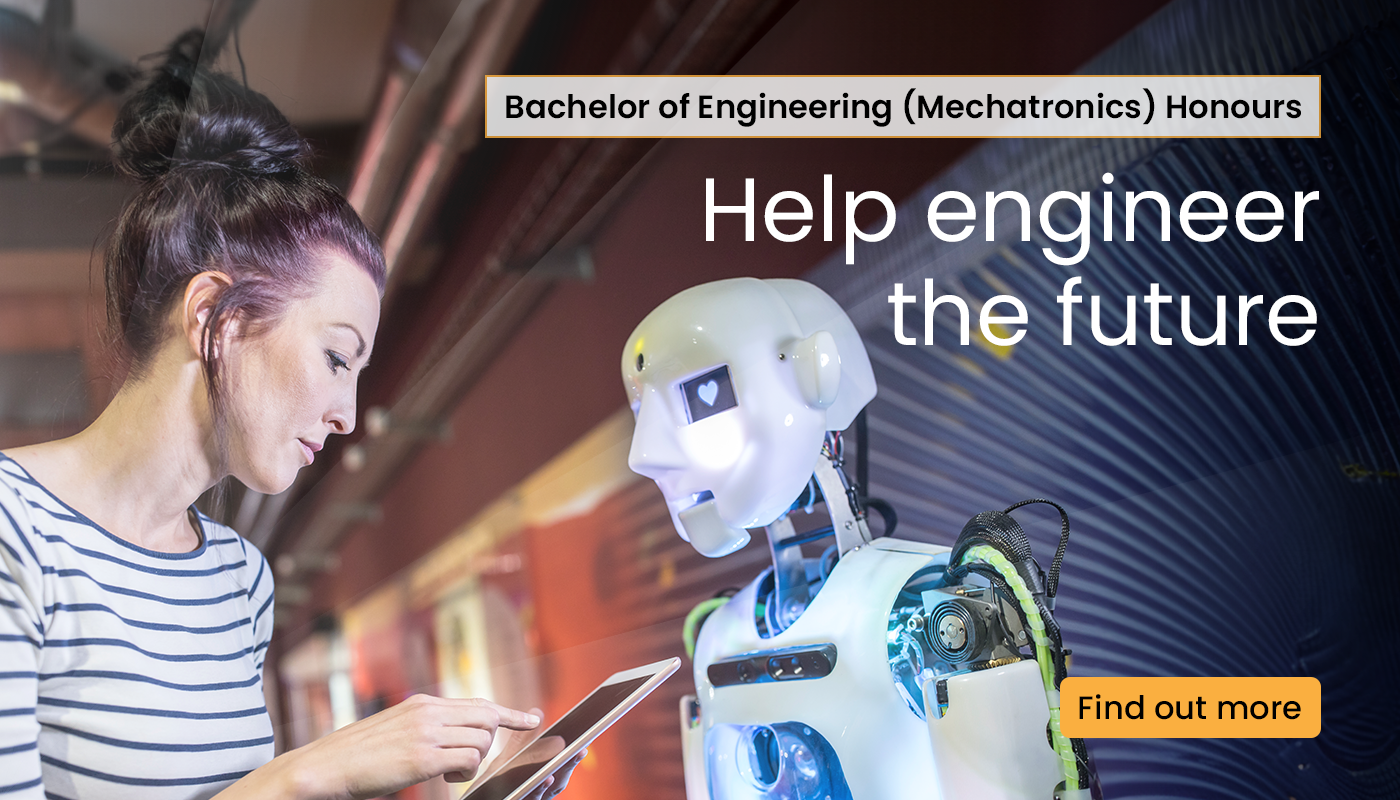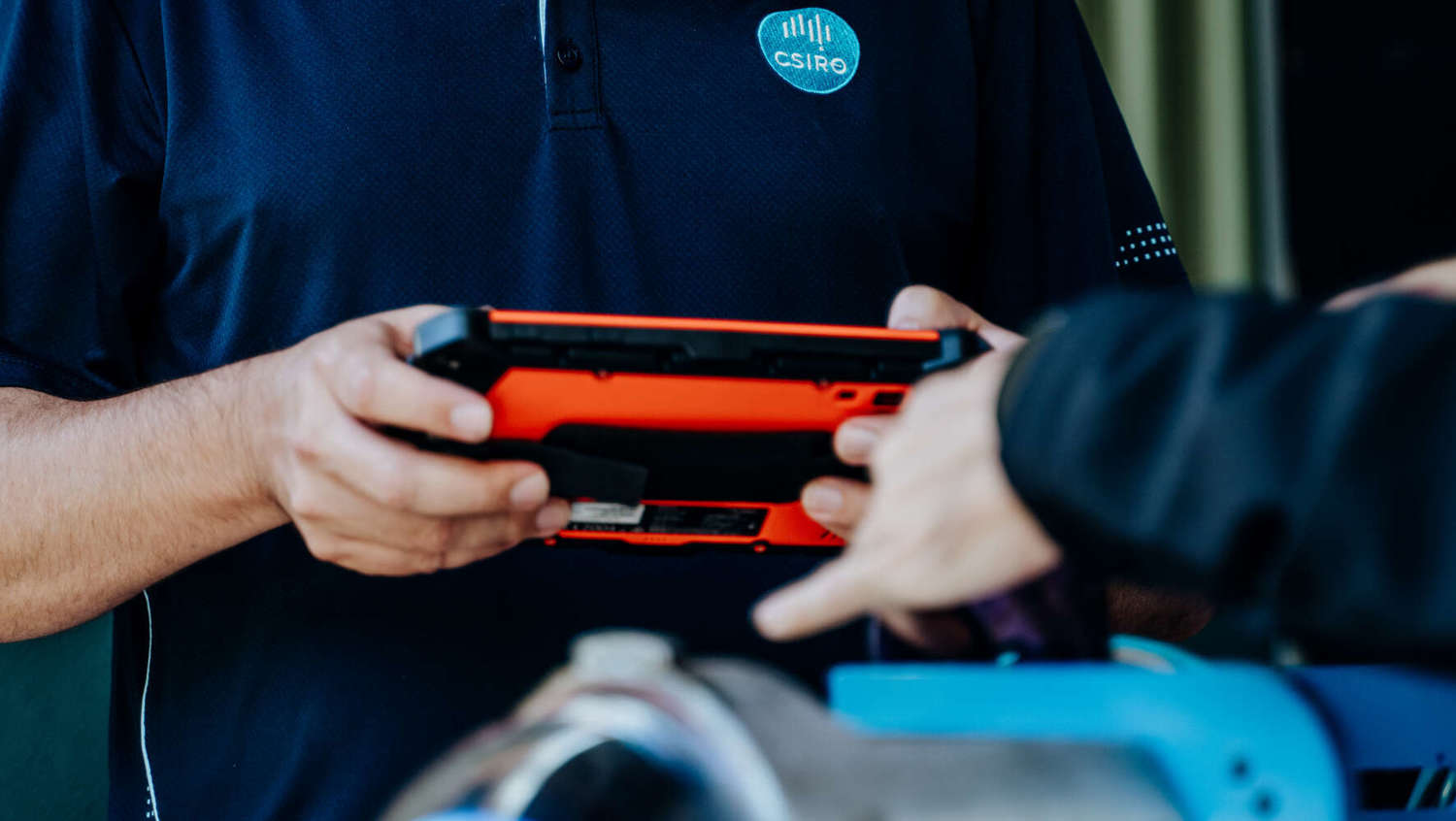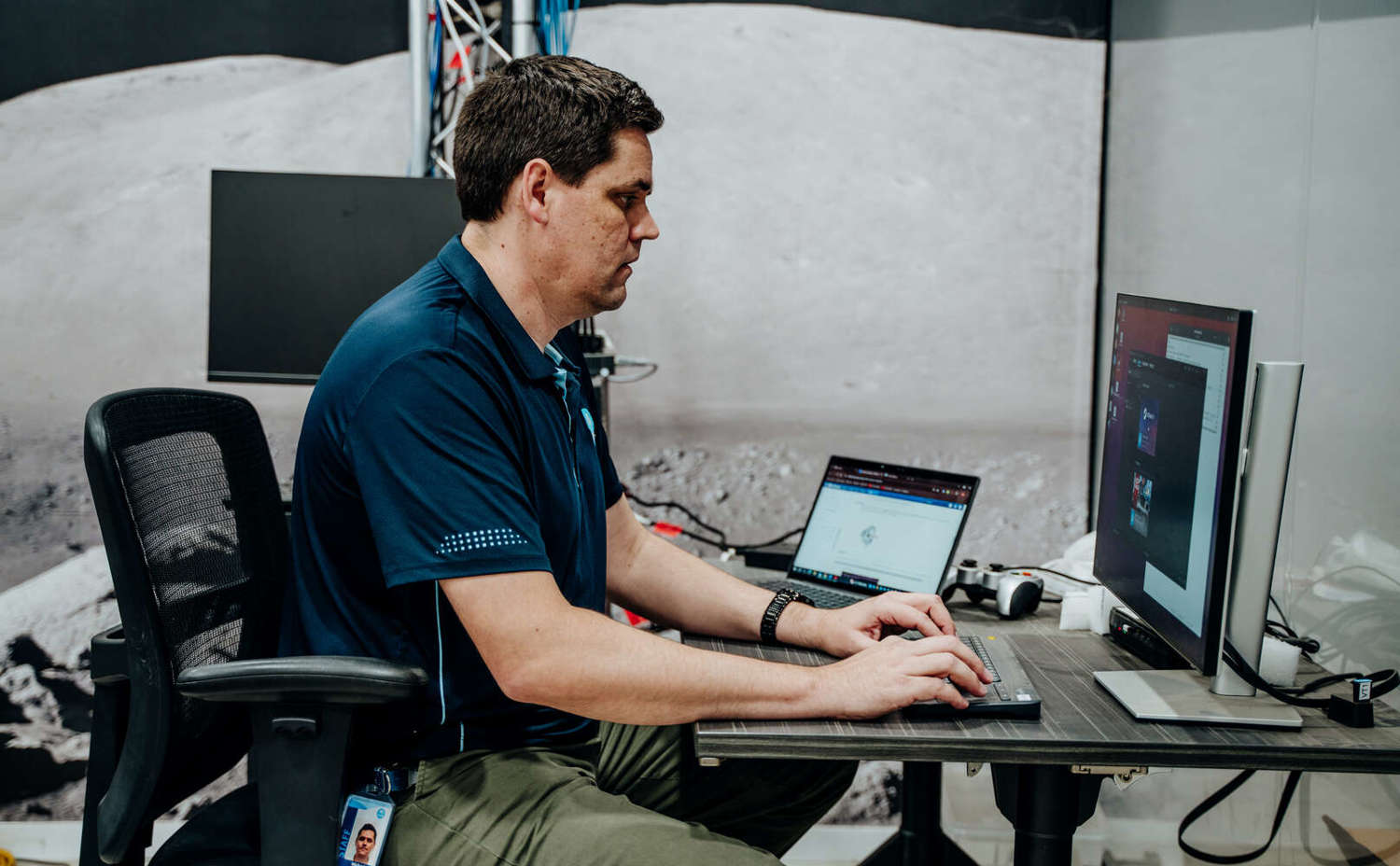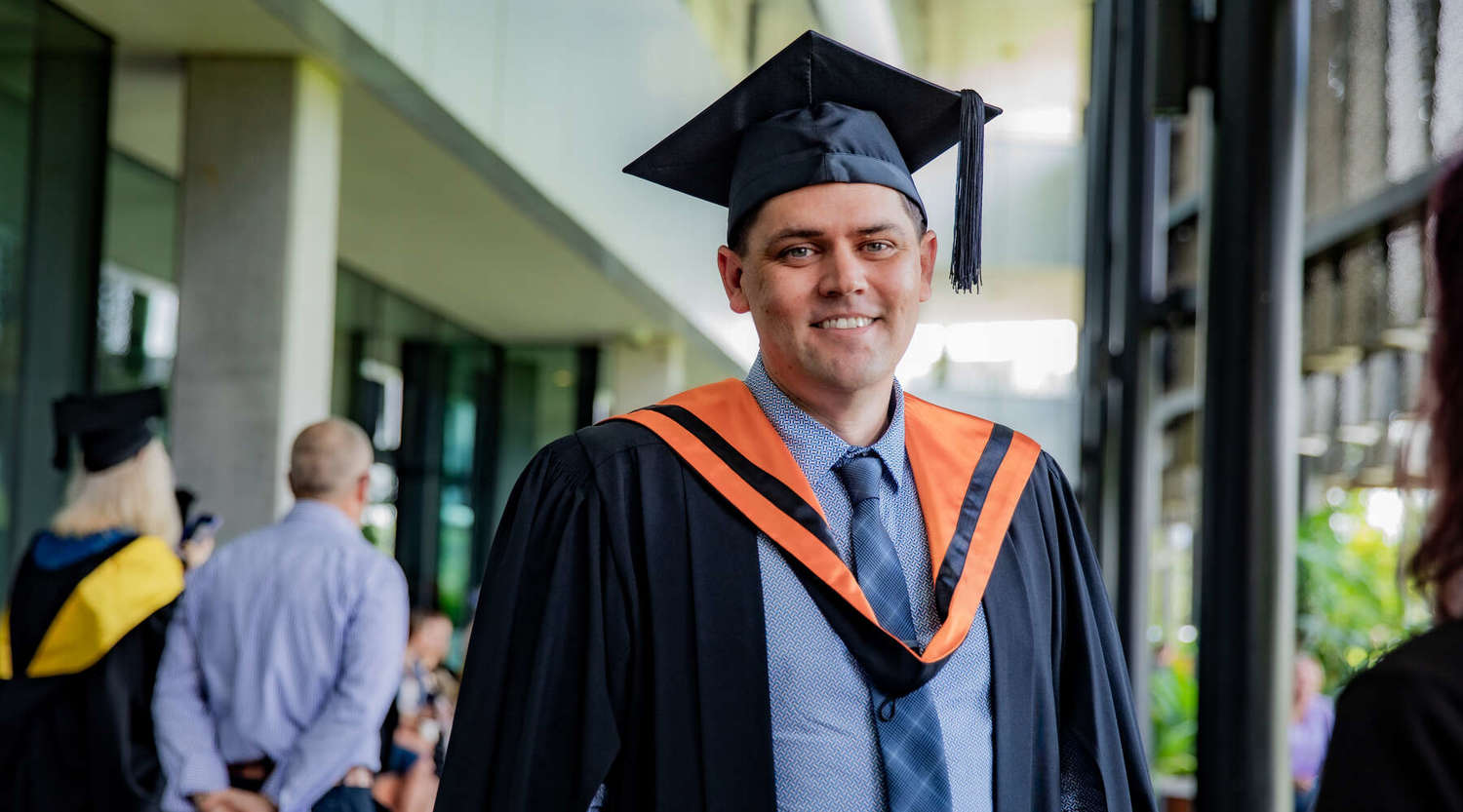From tyre fitting at the family business to studying mechatronics at university to building lunar simulation robots at CSIRO, Michael Tedge’s new career is taking him to the moon and back.
Lunar life begins at 40 for the Wamuran mechanic who recently graduated from the University of the Sunshine Coast with a Bachelor of Engineering (Mechatronics) Honours and a University Medal for his near-perfect grade point average of 6.87 out of 7.
An internship with Australia’s national science agency, CSIRO, during his UniSC degree steered Michael towards the space industry and he is now a mechatronic engineer at its Queensland Centre for Advanced Technologies in Brisbane.
“This role involves working with robots and sensors in underground mining environments and includes remote operations and autonomous systems,” he said.
“It is hoped that the knowledge gained from these projects will be transferrable to CSIRO’s new research area of In-situ Resource Utilisation for the moon and beyond.
“This role is a fantastic opportunity to conduct quality research which will benefit both the Australian mining industry and off-world resource utilisation.”
Off-world robot testing
The In-situ Resource Utilisation Facility at Pullenvale is a lunar testbed that simulates the physical characteristics of the moon’s surface, such as lunar dust, to evaluate robot rovers and other technology and equipment.
“I was employed here part-time after I completed the internship at the end of my second year studying at UniSC Moreton Bay,” Michael said.
“The cable robot I built to simulate lunar gravity on Earth-based rovers allowed me to keep my ‘foot in the door’ until I graduated, gave me real-world engineering experience and influenced my final year thesis.
“This degree has definitely taken me to where I want to be in my career."
'The skills I acquired in mechanical, electrical and software engineering made me highly employable and I now have exposure and experience in research projects relating to the space industry, as well as new mining industry knowledge' - Michael Tedge
Developing university ambition
Michael was in his late 30s when he enrolled at UniSC Moreton Bay in 2020, the year the campus opened at Petrie.
“I had attended Tullawong State High School but sport was my priority, not academics, and I completed Year 12 with an OP score of 11 and zero interest in further study,” he said.
“I entered the family auto repair business as a tyre fitter, completed a certificate as a mechanic and after six years in the workforce left to travel through Africa and Europe.”
After living in Ireland, Michael and his wife returned to South East Queensland where he spent a decade overseeing management and sales at the family business.
“As a hobby, I was dabbling in electronic projects and learning to write code – primarily to create automated projects around my home,” he said.
“I began to feel that my trade and office roles were no longer challenging, so I researched courses available in mechatronic engineering and decided that UniSC would be the best choice for me.”
Michael initially completed a one-semester Tertiary Preparation Pathway bridging course to catch up on academic mathematics.
“After struggling with math in high school, I was pleasantly surprised with my very first High Distinction, and this was the final push that I needed to fully enrol.”
Leading by example
When Michael crossed the stage at the graduation ceremony this month to officially receive his degree, a University Medal and a Student Leadership Award, he felt proud of his hard work.
“These results were far beyond what I imagined that I could achieve after my average high school results. It’s fair to say that if I can do it, anyone can do it.”
He said he had a brilliant time studying, with many highlights.
“In my first year I presented as a finalist in the Engineers Without Borders showcase, which was a competition for universities across Australia.
“In my third year, I was a member of a team recognised nationally for a project that we submitted to the GovHack challenge.
His participation in the UniSC community included engineering committee and student mentor roles, and attending a leadership summit and a common purpose global leadership forum.
“I found the Moreton Bay campus to be a relaxed and open place to study. The classes, labs, and workshops were all brand new and state-of-the-art.
'Each year the campus acquired more equipment and learning platforms, including robotic arms, drones, rovers, diff-drive robots, quadrupeds, industrial automation systems, CNC and lathe machines, PLC units, and communications electronics' - Michael Tedge
And the academics left a big impression.
“The course coordinators and lecturers were great people and highly knowledgeable, offering a lot of one-on-one time if help was required.”
Media enquiries: Please contact the Media Team media@usc.edu.au


